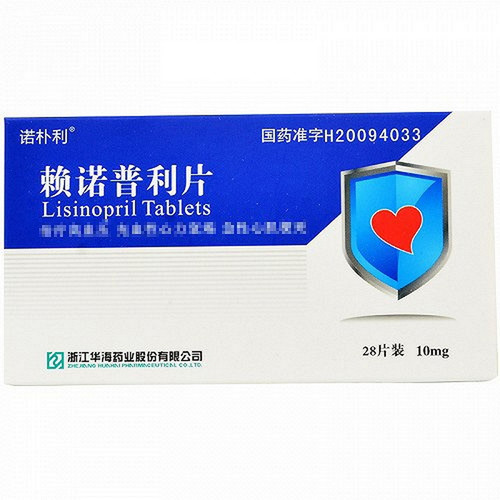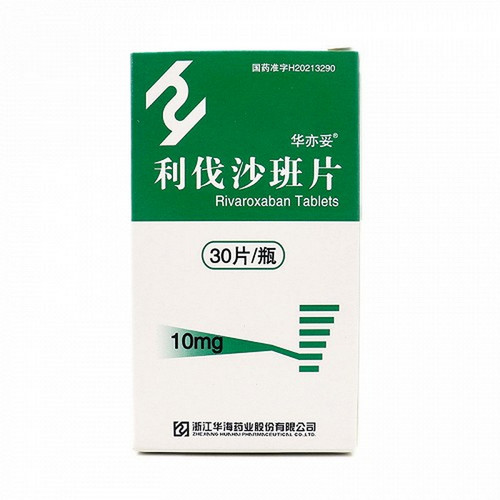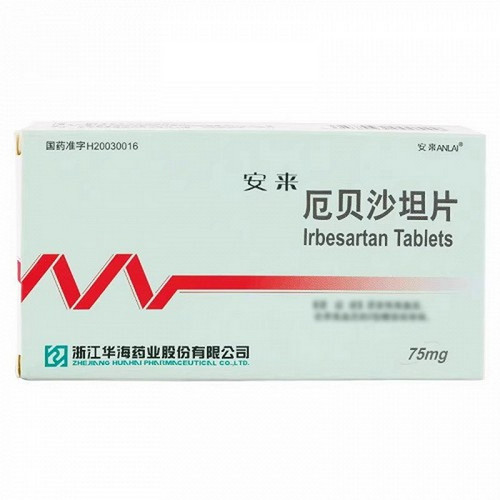Product Overview
[Drug Name]
Generic Name: Fosinopril Sodium Tablets
Trade Name: Yali
English Name: Fosinopril Sodium Tablets
Chinese Pinyin: Fuxinpulina Pian
[Ingredients]
Fosinopril sodium.
[Properties]
This product is a white tablet.
[Indications]
For the treatment of hypertension or heart failure, it can be used alone or in combination with other medications (such as diuretics).
[Dosage and Administration]
The dosage should be individualized and adjusted based on efficacy. Patients with heart failure who are already taking cardiac glycosides and diuretics and who are experiencing water and sodium depletion should start with a low dose of this product.
[Adverse Reactions]
1. Common adverse reactions include headache, dizziness, fatigue, drowsiness, nausea, and cough. The most common reasons for discontinuation are headache and cough. 2 Rare adverse reactions include: symptomatic hypotension, postural hypotension, syncope, palpitations, peripheral edema, rash, dermatitis, constipation, gastritis, anxiety, insomnia, paresthesia, arthralgia, myalgia, asthma, etc. Neurotubular edema is rare and should be discontinued if it occurs. 3 This product has not been found to have mutagenic or carcinogenic effects.
[Contraindications]
1 Patients who are allergic to this product or other angiotensin-converting enzyme inhibitors should not use this product. 2 Patients with solitary kidney, transplanted kidney, bilateral renal artery stenosis and renal impairment should not use this product.
[Precautions]
1 Use this product with caution in the following situations: (1) Autoimmune diseases (such as severe systemic lupus erythematosus): the chance of leukopenia or granulocytopenia increases. (2) Bone marrow suppression. (3) Insufficient blood supply to the brain or coronary artery, which may aggravate ischemia due to lowered blood pressure. (4) Hyperkalemia. (5) Renal dysfunction: Increased blood potassium, decreased white blood cells and granulocytes, and retention of this product. (6) Liver dysfunction: Reduced metabolism of this product in the liver. (7) Patients with strict dietary sodium restriction or dialysis treatment may experience sudden and severe hypotension after the first dose of this product. 2 Interference with diagnosis: The following situations may occur when using this product: (1) Increased blood urea nitrogen and creatinine concentrations, often temporary, are more likely to occur when blood pressure drops rapidly in patients with kidney disease or severe hypertension. (2) Occasionally, serum liver enzymes may increase. (3) Mild increase in blood potassium, especially in patients with renal dysfunction. 3 Follow-up examinations during the use of this product: (1) For patients with renal dysfunction or leukopenia, check the white blood cell count and differential count once every 2 weeks for the first 3 months, and then regularly thereafter. (2) Urine protein test, once a month. 4 The antihypertensive effect of this product is the same in standing and supine positions. 5. For patients currently taking diuretics, discontinue diuretics for 2-3 days before starting this medication. However, an exception is made for severe or malignant hypertension, in which case a low dose of this medication should be used and the dose increased cautiously under observation. 6. If angioedema develops during treatment, discontinue the medication and administer subcutaneous epinephrine and intravenous hydrocortisone.
[Use in Special Populations]
Precautions for Children:
This medication has not been tested and no reliable references are available, so its use in children is not currently recommended.
Precautions for Pregnancy and Lactation:
This medication is contraindicated in pregnant and lactating women.
Precautions for the Elderly:
No dose reduction is required for elderly patients.
[Drug Interactions]
1. Concomitant use with diuretics may increase the antihypertensive effect and may cause severe hypotension. Therefore, patients currently taking diuretics should discontinue or reduce their dose. Start with a low dose of this medication and gradually adjust the dose. 2. Concomitant use with other vasodilators may cause hypotension. If combined use is contemplated, start with a low dose. 3. Concomitant use with potassium-sparing diuretics such as spironolactone, triamterene, and amiloride may cause hyperkalemia. 4. Nonsteroidal anti-inflammatory analgesics (especially indomethacin) can inhibit renal prostaglandin synthesis and cause water and sodium retention. Concomitant use with this drug may weaken its antihypertensive effect. 5. Concomitant use with other antihypertensive drugs may enhance its antihypertensive effect, with a greater additive effect with drugs that induce renin release or affect sympathetic activity and a lesser additive effect with beta-blockers.
[Pharmacological Actions]
This drug is hydrolyzed in the liver to fosinoprilat, a competitive angiotensin-converting enzyme inhibitor that prevents the conversion of angiotensin I to angiotensin II. Consequently, it reduces vascular resistance, decreases aldosterone secretion, and increases plasma renin activity. Fosinoprilat also inhibits the degradation of bradykinin, also reducing vascular resistance. This product dilates arteries and veins, reducing peripheral vascular resistance or afterload, lowering pulmonary capillary wedge pressure or preload, and also reducing vascular resistance, thereby improving cardiac output.
[Storage] Store tightly closed in a dark place.
[Strength] 10 mg
[Packaging] 21 tablets/box
[Expiry Date] 36 months.
[Approval Number] National Medicine Standard H20064148
[Manufacturer] Company Name: Zhejiang Huahai Pharmaceutical Co., Ltd.







